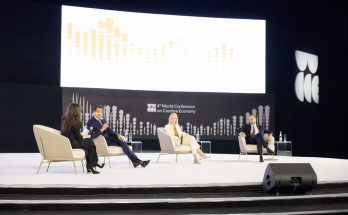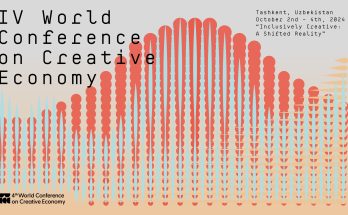By Anuradha Marwah
In April 2019, we toured with Euripides’ Medea (Hindustani, 55 min), staged in-the-round for audiences numbering between hundred and hundred and fifty. The actors performed right next to the spectators and the chorus danced and hummed close enough to touch. Indeed, at one of the shows a child did reach out to touch the hem of Medea’s sari-tunic when she was soliloquising her murderous intent:
“Give me your right hands to kiss, my children, give them to me. O hands and lips so dear to me, o noble face and bearing of my children, I wish you happiness—but in that other place. What is here your father has taken away. Oh, how sweet is the touch, how tender the skin, how fragrant the breath of these children!”
The child, barely out of his mother’s lap, could not have articulated the reasons for Medea’s predicament. He was certainly not mature enough to appreciate a Greek revenge tragedy in which a woman is driven to kill her little sons in order to punish her husband’s betrayal of their marriage. In fact, keeping the bloody theme in mind we had requested the audiences to not get their children for the show. But in Nithari basti (urban village) – as in several other community spaces in India – there are no creche facilities and we definitely wanted the women to watch our play.
Emotional Connect

Anyway, the point I am making is about the emotional connect that the lead actor had made with the spectators at this point. The child who touched Medea’s garment at this climactic moment was expressing in a tactile way what the entire house was feeling: an intense heart-breaking pity for the wretched woman and urgent desire to save her from her own actions. The child was experiencing the pity via the performance that was within touching distance; as well as picking it up from his mother against whom he leaned and the other women who sat close by and whose eyes were streaming. This is the way an immersive or intimate performance works. The entire house is suffused with the emotion that has been generated. In most such performances, audiences participate actively – touch or perform – with the actors. Our objective was to create a forum to discuss issues raised by the play – gender roles and man-woman relationships – via this emotional participation.
But intimate performances seem to be things from the past in 2021. As I plan a second play for the programme Samtal (On level ground) that we had started at our theatre group two years ago, I am hard put to find ways of levelling the ground. Theatre groups all over the world have gone online and there have been significant innovations with platforms like Zoom. I too have tried some online storytelling but it was received in solitary spaces and reduced drastically to the dimensions of a phone screen in the watching. The chat did come alive for some time as spectators responded to us and talked to each other but the discussion was in English alone and I wondered about the absence of those who are not conversant in the language. I found myself missing sorely the community spaces we had explored with Medea: bastis of Delhi and villages of Rajasthan. Imperfect knowledge of Hindi/Hindustani on the part of the audiences had not been an issue when hearts connected; sometimes a woman in the audience gripping my hand after the performance had communicated so much more than words ever can. In fact, even in elite places like India Habitat Centre and Conference halls in universities and colleges of Delhi, where the discussion on the play was in English, a sisterly community empathising with Medea had been achieved.
But in 2021 insurmountable barriers have come up between performers and spectators, especially if they are located across class and gender divisions, and the reasons are not confined to the obvious digital divide. In a way Covid unmasked the most feudal and chauvinistic tendencies in our society. Cases in point are the widely reported exploitation of domestic workers by their middle and upper-middle class employers and of migrant labour by the industrialists.
There have been too many instances of non-payment of wages, termination of employment without notice and even completely illegal confinement at the workplace. Add to this the exponential increase in domestic abuse and the list of unpunished crimes committed against fellow citizens becomes longer and more shameful.
Post-Covid Community
How does one imagine a post-Covid community after this? As a second wave of infection threatens to overwhelm the country what happens to the intimate community performance? As a person whose life and livelihood were not pauperised in the last couple of years, I feel hesitant to venture into the Covid and the post-Covid (someday) performance space. When a mainly middle-class theatre group goes into a further-impoverished community, the message and the medium would have to take into account the large-scale betrayal that has passed. It seems to me that themes relevant to the age have become too big for quotidian imaginings. Medea’s revenge had resonated especially with the women in fifteen spaces when we performed the play in 2019. While condemning the murder of children, woman after woman had related the betrayal of Medea to abandonment of wives and domestic abuse. With compassionate tears they had made a case for equality. Would the play operate at state-level politics and class-war now, I ask myself?
I imagine a community performance by masked activists much in the fashion of how Attic plays must have been held more than two thousand years ago. The performances were big and distant, yet the long and powerful speeches related intimately to everyday life and state-policy equally. Theatre in Ancient Greece was crucial to the development of democracy in the opinion of many scholars. According to Edith Hall, “The theatre was a key element for the self-awareness of the community, which, through tragedies and comedies, was called to question its own political, cultural and moral dimensions, exploring the limits and admiring the virtues.” What virtues except complete equality and uncompromising democratisation of each and every aspect of life would make sense today in communities bearing the brunt of inequalities in a complexly inter-related world!
(Anuradha Marwah is a novelist and playwright . For her first directorial venture, Medea ( Hindustani, 55 min), she collaborated with a Minneapolis-based theatre company during her Fulbright-Nehru Academic and Professional Excellence (FNAPE) fellowship in 2017.)
This article has been written by the author to mark World Theatre Day, which is celebrated the world over on March 27.
Author Profile
- India Writes Network (www.indiawrites.org) is an emerging think tank and a media-publishing company focused on international affairs & the India Story. Centre for Global India Insights is the research arm of India Writes Network. To subscribe to India and the World, write to editor@indiawrites.org. A venture of TGII Media Private Limited, a leading media, publishing and consultancy company, IWN has carved a niche for balanced and exhaustive reporting and analysis of international affairs. Eminent personalities, politicians, diplomats, authors, strategy gurus and news-makers have contributed to India Writes Network, as also “India and the World,” a magazine focused on global affairs.
Latest entries
 India and the WorldJune 26, 2025Operation Sindoor: India Sheds Restraint, Rediscovers Utility of Force
India and the WorldJune 26, 2025Operation Sindoor: India Sheds Restraint, Rediscovers Utility of Force India and the WorldJune 23, 2025BRICS summit in Rio to focus on Global South, local currency trade
India and the WorldJune 23, 2025BRICS summit in Rio to focus on Global South, local currency trade Africa InsightsJune 11, 2025New Opportunities in India-Japan Cooperation in Africa
Africa InsightsJune 11, 2025New Opportunities in India-Japan Cooperation in Africa India and the WorldMay 23, 2025Post-Operation Sindoor, India reminds Turkey, China of concerns and sensitivities
India and the WorldMay 23, 2025Post-Operation Sindoor, India reminds Turkey, China of concerns and sensitivities








